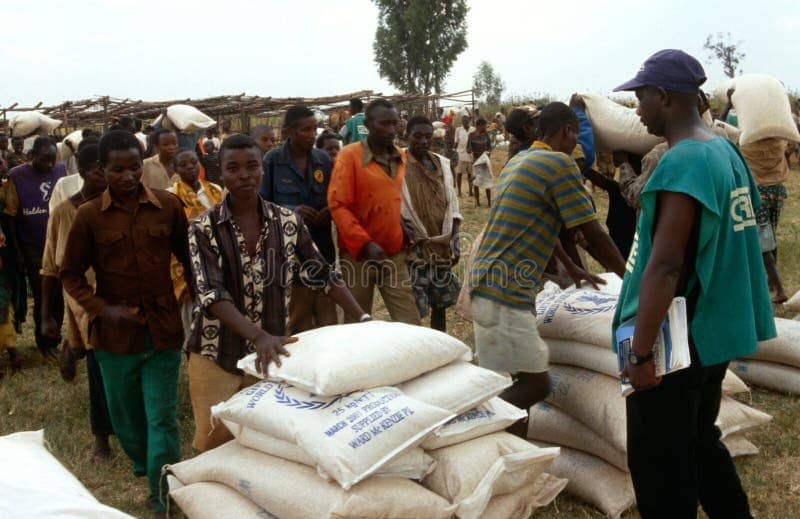Innocent Sibonginkosi Ncube
Zimbabwe is facing an imminent humanitarian crisis as the ongoing economic turmoil has plunged the nation into deep poverty, leading to skyrocketing food prices and severe food shortages.
The Famine Early Warning System Network (FEWS NET) has issued a stark warning, stating,
“Crisis outcomes are now widespread throughout the country… access to food on the market is being increasingly constrained by above-normal prices and significantly below-normal incomes.”
The country’s currency crisis has exacerbated the situation, with a staggering 43% increase in the official exchange rate. This surge has resulted in a dramatic rise in the prices of goods and services.
“This development followed significant increases in parallel market exchange rates in the last few weeks, some even more than double the official rates, which drove corresponding sharp increases in ZWG prices of goods (including food) and services mainly in the formal sectors,” FEWS NET noted.
Water scarcity compounds the crisis, as many rivers, streams, and dams are drying up.
“Water challenges are persisting, especially in the typical low rainfall areas, limiting and even preventing engagement in some livelihood activities, as well as negatively affecting some irrigation schemes,” the report highlights.
Households are now forced to travel longer distances to access water, with some resorting to “dry riverbed sand-scooping for water,” a practice that underscores the desperation of many families.
Bulawayo City is amongst the areas that have been affected by the shortage of water. Some suburbs have gone for over eight months without receiving water from the tap.
Some of the dams that supply Bulawayo with water have been decommissioned.
The situation is dire, and immediate action is needed to address the intertwined issues of currency instability, food shortages, and water scarcity.
“Humanitarian food assistance needs are expected to increase into early 2025… and be significantly higher than last year and the five-year average,” warns FEWS NET.
Local farmer and community leader, Tendai Moyo, expressed his concerns, stating,
“We are struggling to feed our families. The prices of basic food items have become unaffordable, and many of us are going to bed hungry.” He added,
“If the government does not act quickly, we will see more families facing starvation.”
The government, alongside international organizations, must collaborate to provide urgent humanitarian assistance to those in need and support economic recovery efforts.
“We need a coordinated response to this crisis,” said humanitarian aid worker, Sarah Chikwanje.
“Without immediate intervention, we risk losing an entire generation to hunger and poverty.”
President Mnanganwa has had his begging bowl receive nothing of late. Only Rwanda and China responded by donating maize to try and alleviate the dire situation, mostly in the rural areas.
As Zimbabwe grapples with these challenges, the call for action has never been more urgent. The international community must also step in to help alleviate the suffering of millions and restore hope for a better future.
Zim GBC News©2024


